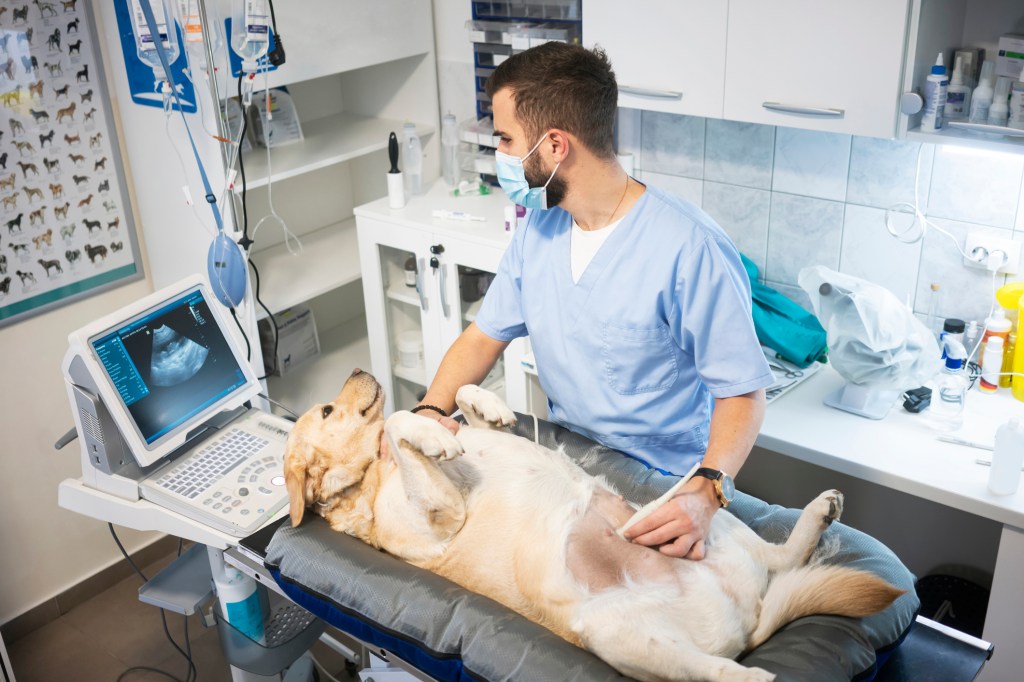Hyperuricosuria in dogs is a medical condition that can result in kidney or bladder stones. Technically, the cause is a dog’s body producing too much uric acid.
Sometimes, surgery is needed to successfully get rid of the stones. Unfortunately, the stones can become life-threatening for male dogs if the urinary tract gets blocked by them.
Additionally, certain breeds seem predisposed to the condition. For example, Black Russian Terriers, Dalmatians, French Bulldogs, and Slovensky Cuvacs all seem to develop the disorder more frequently than other breeds. Also, hyperuricosuria is an inherited condition.
If you see signs that your dog might be suffering from this disorder, then you must consult your veterinarian for a proper diagnosis and course of treatment. Here’s what you should know about the symptoms, causes, and treatments of hyperuricosuria in dogs.
Symptoms of hyperuricosuria in dogs
Hyperuricosuria in canines can result in a number of symptoms. Usually, the symptoms affect how a dog urinates.
For example, some of the most common symptoms of the condition include:
- Not being able to pee
- Vomiting
- Blood in the urine
- Peeing in strange places
- Acting lethargic
- Urinating too often
- Lower than usual appetite
Causes of hyperuricosuria in dogs

Hyperuricosuria in dogs is a genetic condition. This means that a dog is born with it.
Technically, the disorder causes kidney stones or bladder stones. This happens when a dog’s body produces too much uric acid.
Additionally, the following breeds seem to suffer from the condition more than others:
- Black Russian Terrier
- Vizsla
- Catahoula Leopard Dog
- Dalmatian
- Weimaraner
- Bulldog
- American Bulldog
- French Bulldog
- South African Boerboel
- Labrador Retriever
- Slovensky Cuvac
- American Pit Bull Terrier
- American Staffordshire Terrier
- Pomeranian
- German Shepherd
Treatments for hyperuricosuria in dogs
If you think that your dog might be developing hyperuricosuria, your veterinarian will want to carry out a full physical examination of your dog. Additionally, your vet will ask about your dog’s full medical history. This will include any breed-specific problems.
Usually, your vet will use an ultrasound or urine test to confirm the condition. Additionally, DNA testing can be used to see if your pup has the genetic mutation that causes the condition. Technically, this involves the SLC2A9 gene being mutated.
Generally, treatment involves flushing out the kidney or bladder stones. Typically, a urinary catheter is used for this. However, larger stones can require surgery to remove them.
Additionally, switching your dog to a diet that is low in purine can help to remedy the condition. For example, fish and seafood are often high in purine. Also, making sure your dog drinks more water than usual can help. As always, only switch your dog’s diet under the advice of a qualified vet.














